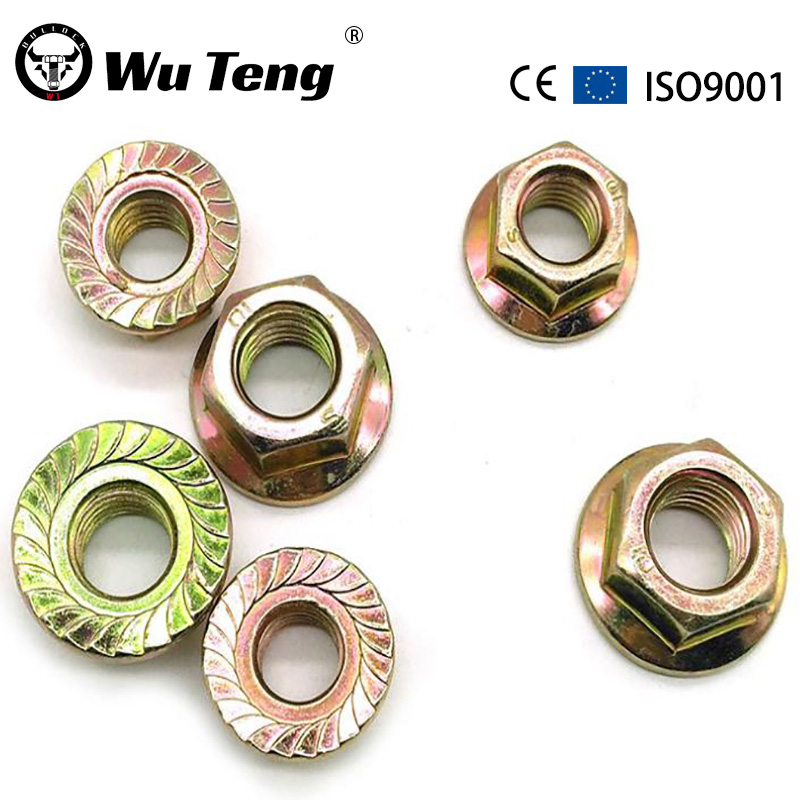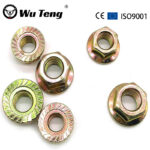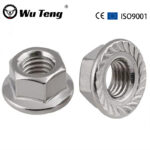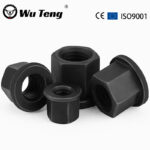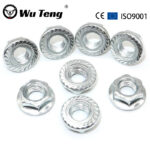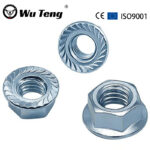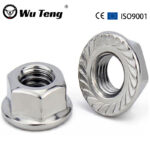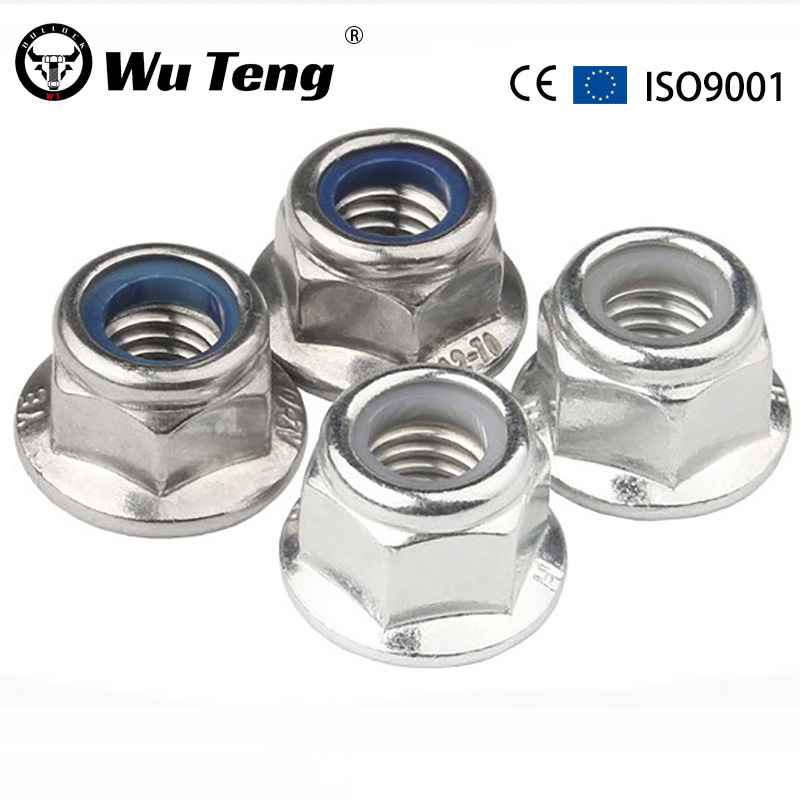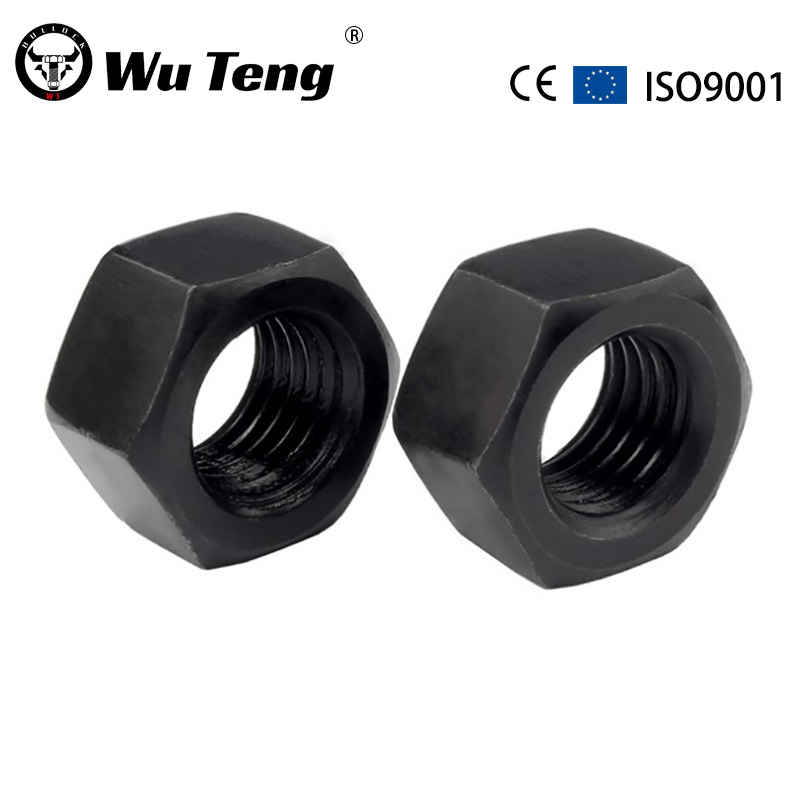
Products
High Quality Galvanized Steel Flange Nuts Fasteners with Polished Finish for Automotive Mining & Heavy Industries
| Thread specification
D |
|
||||||||||||||||||||||||||||||||||||||||||||||||||||||||||||||||||||||||||||||||||||||||||||||||||||||||||||||||||||||||||||||||||||||||||||||||||||||||||||||
|
|
A flange nut is a type of nut characterized by a wide flange at one end of the nut.
Flange nuts have the following advantages:
- Increase contact area: The presence of flanges increases the contact area between the nut and the connected part, disperses pressure, thereby reducing damage to the surface of the connected part and improving the stability of the connection.
- Better load-bearing capacity: able to withstand larger loads, suitable for situations that require higher tightening force.
- Anti loosening effect: Compared to ordinary nuts, flange nuts have better anti loosening performance to a certain extent.
- Easy installation: The presence of flanges makes it easier for nuts to be positioned and operated during installation.
The materials of flange nuts are diverse, commonly including carbon steel, stainless steel, alloy steel, etc., to adapt to different usage environments and requirements.
It is widely used in many fields such as mechanical manufacturing, automotive, aerospace, and construction, for fastening and connecting various components.
The selection of flange nuts suitable for specific projects can consider the following aspects:
- Materials:
Stainless steel flange nut: It has good corrosion resistance and is suitable for humid environments or occasions with high corrosion resistance requirements, such as marine equipment, chemical equipment, etc.
Carbon steel flange nuts: commonly used in general engineering and mechanical equipment, with high strength and rigidity.
Copper flange nut: suitable for high temperature environments or places that require good conductivity, such as power equipment, transformers, etc.
- Specifications:
- Thread specifications: Select the thread specifications that match the requirements of the connector, commonly including M6, M8, M10, etc. Ensure that the threads of the flange nut are compatible with the bolt or threaded hole.
- Height specification: Based on the thickness of the connector, select a flange nut of appropriate height to ensure that the nut can be fully embedded inside the connector and provide sufficient fastening force.
Diameter specification: Select the corresponding diameter flange nut according to the aperture size of the connecting piece, so that there is an appropriate gap between the nut and the connecting piece, which can be easily installed without being too loose.
- Application environment:
- Temperature environment: Consider the temperature range of the usage environment and choose flange nut materials that can maintain stable performance under this temperature condition. High temperature environments may require the use of materials that are resistant to high temperatures, while low temperature environments require ensuring that the materials do not become brittle.
- Humidity environment: If the usage environment has high humidity, materials that can resist corrosion and oxidation should be selected to prevent the nut from rusting and being damaged.
Vibration environment: In environments with strong vibrations, flange nuts that can effectively resist vibration and maintain fastening performance should be selected. For example, flange nuts with anti loosening design may be more suitable for this situation.
- Load requirements: Select appropriate flange nuts based on the load capacity of the connected parts. For situations with heavy loads, high-strength flange nuts should be prioritized to ensure the reliability and safety of the connection.
- Flange standard: Select the corresponding flange nut according to the specific flange standard. Common flange standards include international standards, German standards, American standards, etc. Flange nuts of different standards may have differences in size and requirements.

